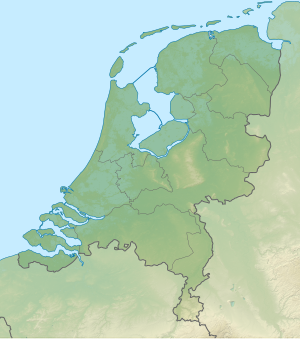Draft:Battle of Woerden
 | Draft article not currently submitted for review.
This is a draft Articles for creation (AfC) submission. It is not currently pending review. While there are no deadlines, abandoned drafts may be deleted after six months. To edit the draft click on the "Edit" tab at the top of the window. To be accepted, a draft should:
It is Where to get help
How to improve a draft
You can also browse Wikipedia:Featured articles and Wikipedia:Good articles to find examples of Wikipedia's best writing on topics similar to your proposed article. Improving your odds of a speedy review To improve your odds of a faster review, tag your draft with relevant WikiProject tags using the button below. This will let reviewers know a new draft has been submitted in their area of interest. For instance, if you wrote about a female astronomer, you would want to add the Biography, Astronomy, and Women scientists tags. Editor resources
Last edited by DavidDijkgraaf (talk | contribs) 35 days ago. (Update) |
| Battle of Woerden | |||||||
|---|---|---|---|---|---|---|---|
| Part of the Franco-Dutch War | |||||||
 Map of Woerden | |||||||
| |||||||
| Belligerents | |||||||
|
|
| ||||||
| Commanders and leaders | |||||||
|
| |||||||
| Strength | |||||||
| 8,000 | 6,500-7,000 | ||||||
| Casualties and losses | |||||||
| 2,500 killed or wounded | 700-800 killed or wounded | ||||||
Location within Netherlands | |||||||
The Battle of Woerden took place on the night of 11 October to 12 October 1672 during the Franco-Dutch War. The battle was fought a few hundred metres north of Woerden at Fort Kruipin between the Dutch Republic and France. The battle was fought for the possession of the town of Woerden.
Background
When the French invaded the Netherlands in June 1672, many Dutch towns and fortresses fell swiftly to the large French army. The Dutch land forces had not directly confronted their opponent in the first months of the war, except during the small encounter at Tolhuis. However, when the French marched on Holland, the richest province in the Republic, they encountered the Dutch Waterline. This line of defense would prove insurmountable and a stalemate ensued.
At sea the all hopes of an Anglo-French naval invasion were dashed by the Dutch victory at the Battle of Solebay, and on 25 July, the Holy Roman Emperor entered into an alliance with the Dutch Republic. He pledged the Republic to send 36,000 troops to attack the lands of the German Bishops. This promted Turenne to dispatch himself with a part of the French army in order to guard against an Imperial attack. Because Condé was not yet allowed to lead the army again after falling out with Louis after the Battle of Tolhuis, the Duke of Luxembourg took command of the French occupying army in the Dutch Republic.
In mid-September, the Dutch supreme command wanted to take action against the foreign occupiers.

